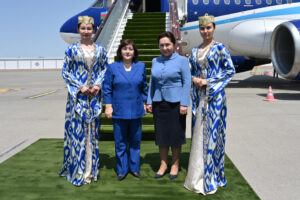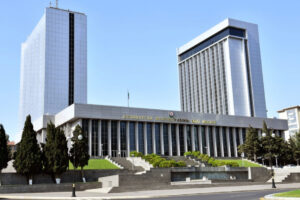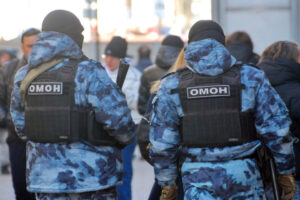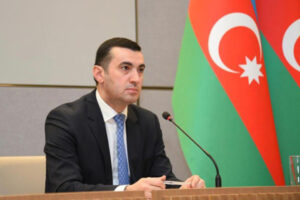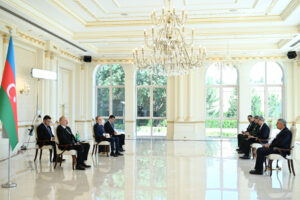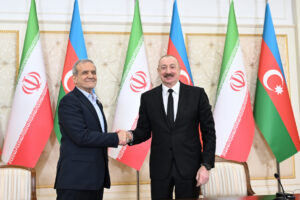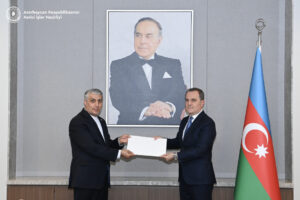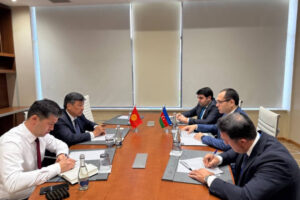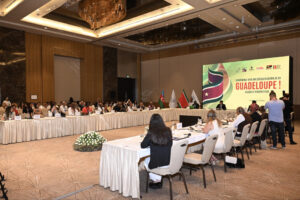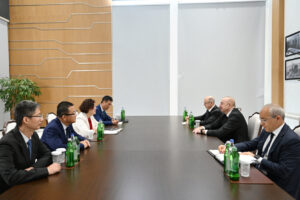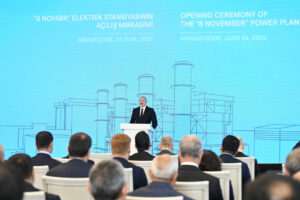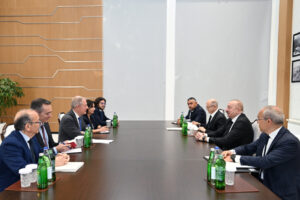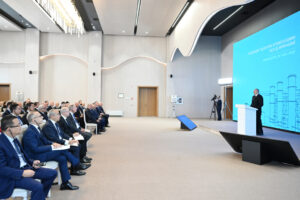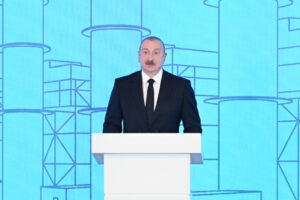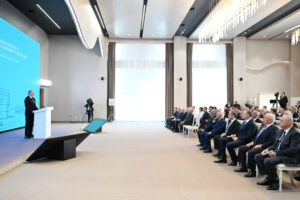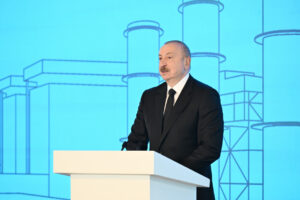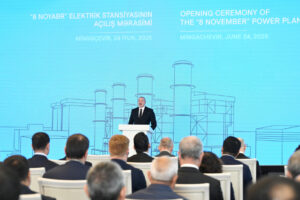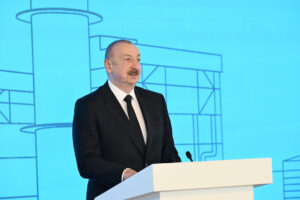Tokyo, 19 June, /AJMEDIA/
Japanese Prime Minister Fumio Kishida has ruled out calling a snap election soon but appears eager to create a better environment for one by highlighting his presence at upcoming diplomatic events.
He is said to be keen to secure another term as leader of the ruling Liberal Democratic Party by winning a general election. While facing several setbacks at home, lawmakers say Kishida believes his popularity will rise if he can demonstrate to the public that he is strong in foreign affairs.
Kishida, who served as foreign minister for around five years before becoming prime minister in October 2021, has recently focused on building stable ties with China and paving the way for a summit with North Korea, both neighbors of Japan that pose security challenges.
The lawmakers, however, warn that his endeavors are unlikely to bear fruit, as China and North Korea may disregard Kishida amid reports he has toyed with the idea of dissolving the House of Representatives for an election.
On the domestic front, Kishida has pledged to pursue measures that could involve tax hikes to address key challenges facing Japan, including a costly child care policy and the expansion of the defense budget, while coming under fire for the mishandling of personal data retained under the “My Number” identification card system.
If he fails to score points on the diplomatic front, Kishida, who hosted the Group of Seven summit in Hiroshima in May, may choose to wait until next year for a lower house dissolution, the lawmakers said.
There was speculation that Kishida would call a snap election after smoothly hosting the G7 summit, at which Ukrainian President Volodymyr Zelenskyy made an appearance.
Last year, Kishida’s grip on power was shaken by revelations of links between LDP lawmakers and the controversial Unification Church as well as the resignations of four Cabinet members, two due to political funding scandals.
Kishida’s hasty decision to hold a state funeral with taxpayers’ money for former Prime Minister Shinzo Abe, who was assassinated in the city of Nara in July 2022, also led his Cabinet’s support ratings to plunge to around 30 percent, widely regarded as a “danger level.”
The Cabinet’s approval ratings have picked up following Kishida’s surprise visit to Ukraine in March for talks with Zelenskyy and progress in resolving a long-standing dispute with South Korea over wartime labor compensation.
Kishida “seems to have recognized that underscoring his diplomatic success will lead to an increase in his popularity,” said a government source close to him.
Following the G-7 summit in Hiroshima, where Kishida’s constituency is located, the cabinet’s support ratings continued to recover until inappropriate photographs taken during a family function at the prime minister’s official residence and the problems with the My Number system emerged.
Despite mounting concern over the security of personal data retained under the My Number system, the government has continued to promote the use of the ID cards.
The mishandling of personal information has reminded people of the loss of pension records that came to light in 2007, which resulted in a devastating defeat for the LDP in the House of Councillors, or upper house, election in July that year.
To divert the attention of voters from domestic issues, Kishida is “expected to concentrate more on diplomacy with an eye on a lower house election,” the source said. The next LDP presidential race is scheduled to be held in September 2024.
Tatsuhiko Yoshizaki, a foreign policy expert at the Sojitz Research Institute, said Kishida may attempt to address “China, the most difficult challenge Japan has encountered,” after he deepened ties with the other leaders of the G7 democracies.
In April, Toshihiro Nikai, a former LDP secretary general known for his pro-China stance, became the head of a cross-party group that advocates friendly Sino-Japanese relations. The post had been vacant since late 2021.
Given the appointment, some new developments are “likely to occur” after the closing of the current parliamentary session, Yoshizaki said, with expectations growing that Kishida might visit China to meet with President Xi Jinping in the near future.
The two Asian powers are at loggerheads over the Tokyo-controlled Senkaku Islands, which Beijing claims and calls Diaoyu, and Chinese coast guard vessels have repeatedly entered Japanese territorial waters around the group of uninhabited islets.
As for North Korea, Kishida has reiterated his readiness to hold talks with leader Kim Jong Un to lay the groundwork for resolving the issue of Japanese nationals abducted by Pyongyang in the 1970s and 1980s. Japan and North Korea do not have diplomatic ties.
In May, Kishida said he would set up senior-level negotiations between Japan and North Korea to arrange a bilateral summit. A Foreign Ministry source said Tokyo has been seeking an opportunity behind the scenes to sound out Pyongyang about the possibility of talks.
But some LDP members said Kishida will not be able to drive diplomacy as his credibility has been undermined since he hinted at the possibility of dissolving the lower house, causing jitters within the party.
Kishida said Tuesday he would decide on the timing of a dissolution of the lower house after assessing “various circumstances,” a reversal of his previous stance that he was “not considering” calling a general election “for now.” On Thursday, he vowed not to dissolve the chamber soon.
One of the LDP members said, “We cannot understand why he abruptly made contradictory statements, creating a sense of crisis among lawmakers. If he had ulterior motives, we cannot entrust such a person with crucial foreign policy matters.”
With Xi and Kim having solidified their power, they “would not view” Kishida, who has failed to increase his clout in his own party, as a suitable negotiating partner, the LDP member said. “A snap election is not around the corner.”










